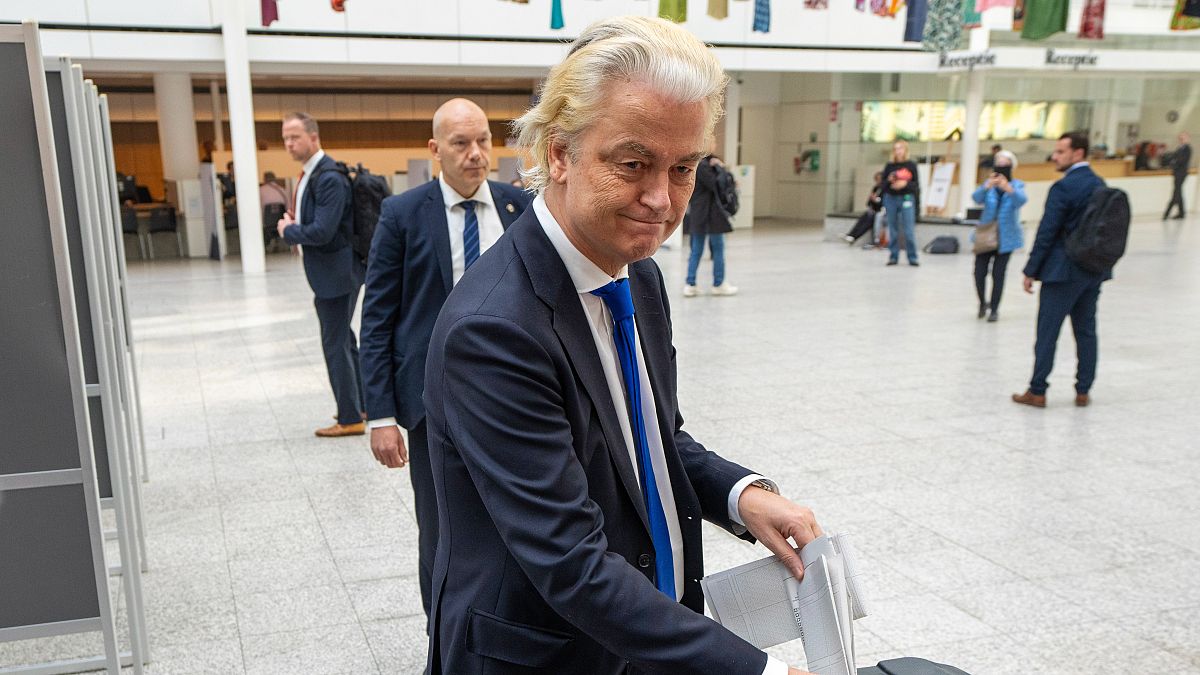Europeans are going to the polls in a fraught geopolitical environment.
Apparent cyberattacks on EU political parties are just the latest round of disruption to an election campaign that has become increasingly fractious.
From 6-9 June, hundreds of millions of voters are going to the polls in one of the world’s biggest democratic exercises – after a months-long period that has been marked by both peaceful protest and, occasionally, physical violence.
Pro-Kremlin hackers have claimed responsibility for a series of attacks on Dutch websites on Thursday (6 June) – the day that voters in the Netherlands went to the polls to select their 31 MEPs for the next five years.
Sites including Geert Wilders’ PVV and the Christian-democratic CDA were down for a time on polling day, and the European Court of Auditors was also targeted.
Not all protests involve attacks.
But even peaceful demonstrations have provoked angry reactions from political leaders, including Ursula von der Leyen, the incumbent European Commission President hoping to secure a second term in office.
“In Moscow they would be in jail in two minutes,” von der Leyen said of pro-Palestinian protestors who confronted her in Porto, according to remarks reported by the Observador newspaper.
A spokesperson for von der Leyen’s campaign did not immediately respond to a request for comment.
But protests have sometimes taken a much more sinister turn.
In France, election posters for Raphaël Glucksmann have been defaced with Swastikas, and the words “Israel” and “dirty Zionist” – which the the socialist leader says is a case of anti-Semitism.
“What explains that I’m the only politician whose posters are tagged?”, Glucksmann asked in an Instagram post on Thursday (6 June), adding that he supports a Palestinian state. “The answer is as sad as it is clear: my name … a Jewish name.”
Those ugly incidents follow a string of physical attacks – notably in Germany, where politicians from across the political spectrum have been targets.
Earlier this week, Heinrich Koch, a local council candidate for the far-right Alternative for Germany (AfD), was injured in an apparent knife attack in Mannheim.
That follows attacks on socialist MEP Matthias Ecke, and Berlin official Franziska Giffey – as well as an assassination attempt on Slovakian Prime Minister Robert Fico, whose injuries were at one stage judged life-threaning.
Elections continue until Sunday to elect 720 MEPs who’ll agree laws for the next five years – and today it’s the turn of voters in Ireland and Czechia, where the Prime Minister has pledged to “strengthen Europe’s security against threats from Russia and China.”
In March, the Czech government sanctioned the Voice of Europe website, accusing it of being part of a pro-Russian influence operation, which, according to the Belgian Prime Minister Alexander de Croo, had been paying MEPs to spread Russian propaganda.
High tensions are inevitable in any political campaign – and more given a geopolitical backdrop including wars in Ukraine and the Middle East.
But after the count is done, political leaders will no doubt be wringing their hands about what the campaign means for Europe as a peaceful and free democracy.

